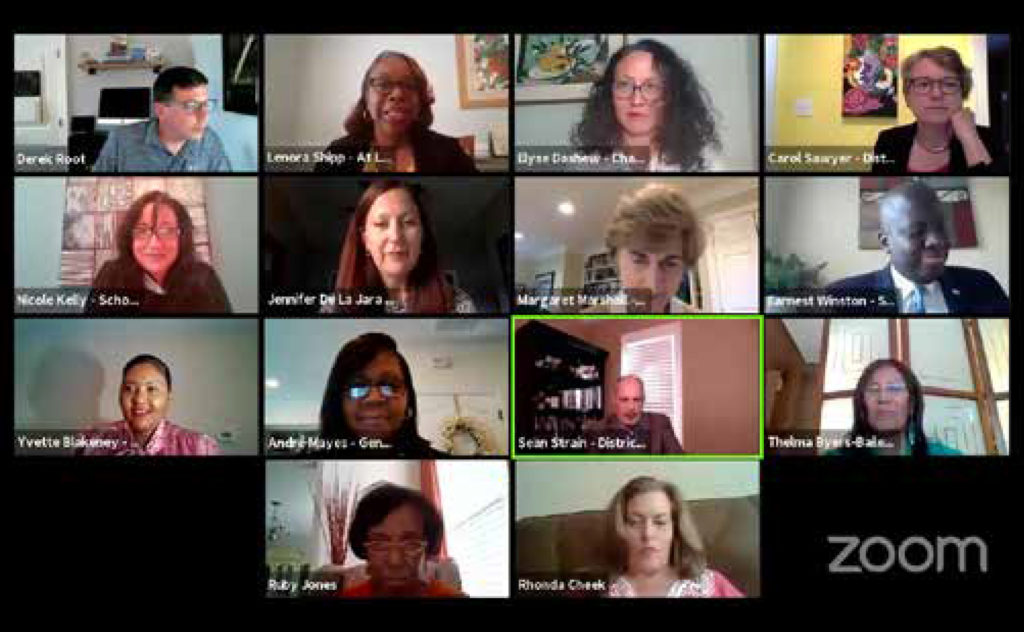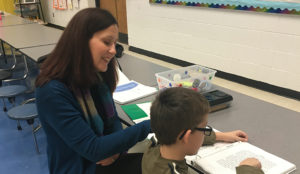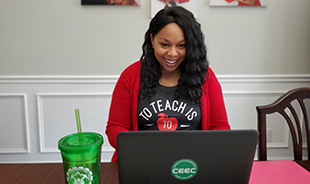
CMS board meets with the help of Zoom
May 7. By Dave Yochum. CMS is working toward different Gov. Roy Cooper’s announcement that public schools will remain closed for the rest of this school year because of COVID-19 leaves students and their families with a lot of questions.
Will there be a graduation? How will grading take place? What about enrolling for next year?
The new normal means being flexible and understanding that you can do only what you can do. Same with others. Same with big organizations: CMS has 140,000-plus students.
Parents who must go back to work can get help with childcare resources by calling 704-353-1926.
As of May 1, CMS has distributed 1 million meals through-out Mecklenburg County.
Superintendent Earnest Winston has convened a task force comprised of seniors, parents, teachers, principals and central office staff to look at alternatives to traditional graduation ceremonies.
“We are working hard to make sure that our graduates are celebrated and honored in some way,” said veteran CMS Board Member Rhonda Cheek, a Davidson resident. “Some recommendations will be coming soon.”

Cheek
Proms have already gone away. But learning is still going on and should continue for the remainder of the year, with the help of teachers online.
Expect that teachers will continue to reach out to students. CMS, meanwhile, is focused on providing excellent re- mote learning. If there’s a conflict, approach the teacher first, then the principal, same as during pre-corona- virus education.
If high school students were failing a class, specific attention will be given to them for recovery, said board CMS Board Member Jennifer De La Jara.
Student promotion and retention will remain the decision of the school principal and staff. School staff will primarily focus on retention cases that were already well underway before March 13 for reasons other than the impact of the COVID-19 pandemic issues.
School starts Aug. 17
When Gov. Roy Cooper signed the $1.57 billion COVID-19 relief package into law on Monday, it also included changes to the school calendar and millions in funding.
The next school year will start on Aug. 17, a week earlier than normal, and end no later than June 11, 2021.
Sanitizing stations
There will be more sanitizing stations and more disease prevention protocols, Cheek said.
Public schools in North Carolina could get $389 million or more from the federal government to help them deal with the impact of the coronavirus pandemic.

De La Jara
The $2 trillion federal Coronavirus Aid, Relief, and Economic Security (CARES) Act includes money that can be used to help K-12 schools deal with feeding and educating students while schools are closed.
Gov. Cooper initially closed schools through May 15 and on April 24 announced that they will remain closed to continue slowing the spread of the coronavirus.
Regardless, the closure has meant different things to different students and parents. There are language differences as well as technology challenges.
“I think there are some families that have embraced this, some families that are just doing what they can to get by and some families that are just not able to really engage and help their kids with learning and educational activities,” Cheek said.

Deanna Cureton, 2017 Teacher of the Year, teaching from home
ONLINE LEARNING: What’s expected
—K-5: Maximum of 2 hours a day or 10/week online
—6-8: 2 hours per course each week, maximum 10 hours
—High school: 3 hours per course per week or 1.5 hours per course per week, maximum of 10.5-12 hours per week online.Source: CMS




